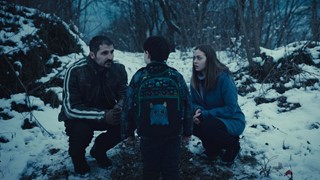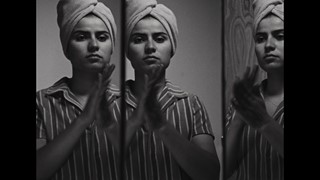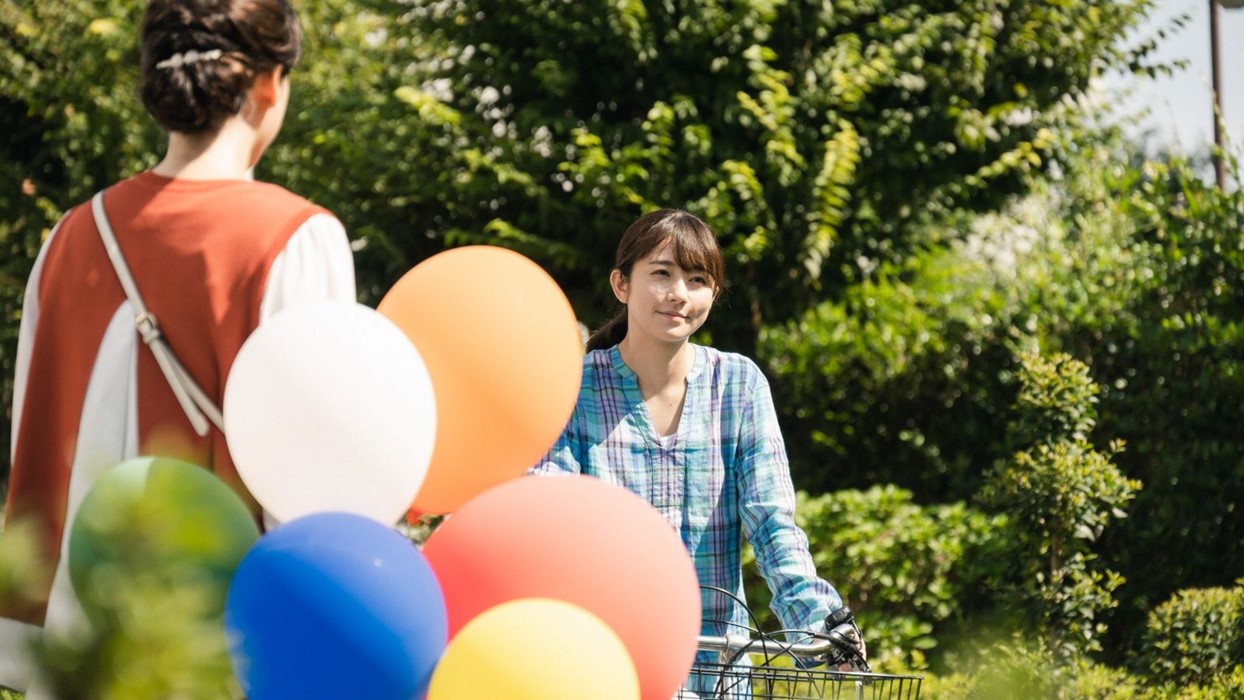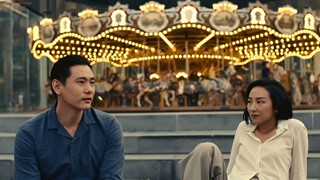From Celine Song’s breakout Sundance hit Past Lives to Ira Sachs’s steamy three-way drama, here are the films to add to your watchlist this month
RMN
There’s an evil that stalks the land in RMN, emboldened by the chill political winds that have been sweeping through Europe these past few years. Cristian Mungiu’s hypnotic study of a community in revolt is based on a real-life incident from 2020, when thousands of locals in a Romanian village protested the arrival of three Sri Lankan workers at a bakery.
Mungiu’s version of events begins with a death foretold, a boy out walking in the woods on an ashy winter’s day in rural Transylvania. He sees something that we don’t in the trees, there’s a creaking noise, the kid begins to run. Boom! Five minutes in, and the director establishes a mood of latent violence that he sustains brilliantly over the film’s haunting 125 minutes.
The child’s father is Matthias (Marin Grigore), a wounded bear of a man forced to take work, like most of the men in the village, in a different country. On returning home from Germany, he learns that his son has stopped talking since the incident in the woods, and tries to ‘fix’ him with hunting trips and choice nuggets of wisdom like “people who feel pity die first”. Meanwhile he rekindles an affair with the manager at the local bakery, Csilla (Judith State), a liberal, educated woman who spots an opportunity to gain EU funding by hiring foreign workers to the factory. But this doesn’t go down well with townsfolk in the ethnically Hungarian community, where tribal grievances go back decades and the locals boast of having driven out the Romani population years ago.
Matthias is a violent man, respected in the community but holding himself somewhat aloof from the pitchfork mob massed against the foreign arrivals, migrant workers like themselves. Where do his allegiances lie? The film seems to suggest that the question is key, floating the idea in a brilliant scene where a town hall meeting dissolves into a sort of carnival of the grotesque, but why is never that clear. Mungiu seems to run out of places to go after that show-stopping scene, landing on a climax that is slippery to the point of being self-defeating. But the Haneke-like chill of its masterful first half lingers long in the memory.

Past Lives (lead image)
Celine Song’s breakout Sundance hit opens on three people at a bar, their exchanged glances drawing guesses from an unseen couple about the nature of their relationship. It’s a clever bit of framing for this romantic drama told partly in flashback, about a Korean woman, Nora (Greta Lee), who reconnects with childhood soulmate Hae Sung (Teo Yoo) 12 years after moving with her family to Toronto. Then life intervenes when Nora, now living in New York, meets future husband Arthur (John Magaro) at a writer’s retreat in the country. Years later, when Hae Sung announces he is coming to NYC to see Nora, the stage is set for long-buried passions to come to the fore. Buoyed by Daniel Rossen and Christopher Bear’s lush, romantic score, it’s a film that calls to mind Brief Encounter in its intensity, Sliding Doors in its occasional contrivance. That’s not a bad thing, by the way, and perhaps the only false note in this warm and inviting film is the fact that the ‘other’ guy, hubby Arthur, comes off as way more interesting than Hae Sung. But perhaps that was just me?

Passages
Is the world ready for the triple-threat of sexy that is Franz Rogowski, Adèle Exarchopoulos and Ben Whishaw together in one film? Ira Sachs’ knotty, combustible three-way drama Passages concerns Tomas (Rogowski), an acclaimed auteur with a fabulously louche wardrobe who is married to Englishman Martin (Wishaw). That doesn’t stop him from helping himself to Agathe (Exarchopoulos), a teacher whose deliciously frosty air he is drawn to, beginning a bohemian love triangle in which he struggles to maintain the whip hand. Sachs’s film is about the mess and magic of desire, but also the selfishness of a certain kind of artist-tyrant figure, and the latitude we afford these people to be in their orbit. On that front, a little more of Tomas being brilliant wouldn’t have gone amiss to make him a slightly less pathetic figure, but with a cast this talented – did we mention hot? – it’s enough to sit back and watch the sparks fly.
Read AnOther’s interview with Franz Rogowski here.

Fremont
Babak Jalali’s fourth feature to date is a curious thing, a PTSD drama that flirts bashfully with becoming an indie rom-com, changes its mind, then gives us a finale where the lead meets a hot but sensitive mechanic played by The Bear’s Jeremy Allen White. What are the chances? It’s helped massively by its star, first-timer Anaita Wali Zada, who brings real emotional force to Donya, an Afghan refugee working at a fortune cookie factory in suburban California. Still reeling from her experiences of the war, she starts seeing a therapist (Gregg Turkington, superb), whose overweening fixation on the novel White Fang might be getting in the way of his ability to do his job, and dips a toe on the dating scene at the behest of her colleague. When that goes nowhere, she folds a message into a cookie along with her mobile number, and we’re left to ponder if the message will reach a kind-hearted suitor who’ll cure her of her loneliness. It doesn’t, but Donya will find connection when she’s finally ready to engage with the world once more.

Love Life
There’s an exuberance to the filmmaking in Love Life, as Kōji Fukada shows us the cracks in a young family’s seemingly happy home life before taking a stick of dynamite to it with a single, static shot of a child left alone in the bathroom. At a stroke, an Ozu-like study in Japanese family manners becomes an unexpected meditation on grief and the long, winding paths it takes us on, as husband Jirō (Nagayama Kento) and wife Taeko (Kimura Fumino) go on parallel journeys involving their exes in an attempt to put a name on their loss. Fukada’s film packs serious emotional punch, but avoids becoming a slog thanks to some sensitive performances and a string of memorable scenes, including a beautifully choreographed birthday party and a wordless scene where Jiro is left outside in the rain when a wedding party dashes indoors.
